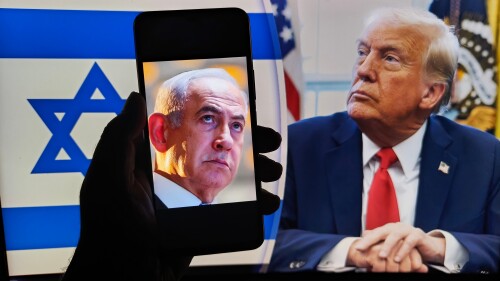The vibes coming out of the first round of nuclear talks between Iran and the US are surprisingly positive — at least for the sides that engaged in them, if not for other interested parties.
US lead negotiator Steve Witkoff and Iranian Foreign Minister Abbas Araghchi spoke in person shortly after Saturday’s talks wrapped up. Araghchi himself acknowledged the face-to-face meeting, despite Iran insisting earlier in the week that there would be no direct talks between the sides in Oman.
The Iranian diplomat also went out of his way to note that the talks took place in a “productive and positive atmosphere.”
The White House echoed Araghchi’s characterization of the negotiations.
Most significantly, the two adversaries agreed to keep the talks going, with a second meeting scheduled for this Saturday, apparently back in Oman.
Read the full article at the Times of Israel.








